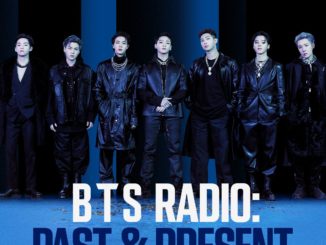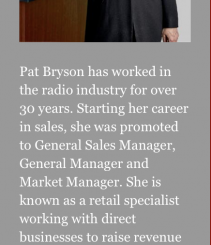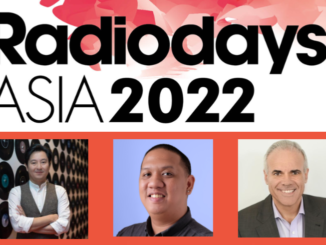Selling Radio Direct with Pat BrysonIn my past few articles on radioinfo, we’ve been talking about the need for great customer service and expanding our personal brands in a positive way. I enjoyed some great customer service while at the NAB.Sometimes we can learn as much about what NOT to do when we encounter poor customer service. This recently happened to me. Those of you who fly know the frustrations that delayed or cancelled flights can cause. Sometimes these are unavoidable because of weather. Lately most of the delays have been self-inflicted by the airlines.Lesson Number One: If we have to do maintenance, PLEASE try to schedule any time off line or off air to affect as few listeners or clients as possible. I think back to times we changed traffic systems, billing systems, and did not fully explain in advance to our clients what was happening and what to expect. Clients want their interaction with us to be seamless.Coming back from a client visit, my initial flight was delayed because of the airline pulling equipment off for maintenance and not allowing for the problems that might cause. I missed my connection in DFW and was stranded for the night. I, along with about 40 other people queued up to get rebooked. There were three people working (this was 11:30 at night), but one left (shift ended) while the teeming masses looked on expectantly waiting to be helped. Half way through the process, the airline representative told us they had run out of comp rooms. The airline, which shall remain nameless but has the initials AA, had just created an even greater problem. When I arrived to the representative, he told me to book a room and AA would reimburse me for the hotel and travel two and from within two weeks. If you know DFW, it’s in the middle of nowhere. I called a couple of hotels, and finally found the Hyatt on the grounds had a room. I crawled into bed (no, I didn’t have my suitcase, pajamas or makeup) about 12:30AM.Lesson Number Two: When problems occur with our listeners or clients, PLEASE have the person to whom they speak act like they care. None of these representatives were sympathetic to any of the stranded passengers. Neither did they go above and beyond in any way. A little sympathy and kindness goes a long way. So would a bottle of water or at least a smile.I did arrive home the next day and immediately sent my receipts and paperwork to AA as instructed.Now comes the rest of the story. I was contacted by a representative and told that they were “sorry for my inconvenience” and would reimburse me $124.42 plus 10,000 miles. (my invoices totaled $399.96). This amount is the “company policy” for reimbursement at DFW. This began a back and forth for the past 4 weeks. Each interaction has further frustrated and irritated me.
Note: Customers don’t care about your “company policies”. They just want to get their problems handled.Lesson Number 3: What are our “company policies”? Most company policies are set to benefit the company, not the customer. In today’s competitive environment, we can’t afford to be company centric rather than client centric. Once we create customer centric policies, these must be pushed down to our front-line people. How are our phones answered? If one of our staff encounters a listener or client with a problem, do they see it through? Do they accept responsibility for connecting that listener or client with the person who can resolve the issue while maintaining oversite? (How many times have you called a company to resolve a billing issue and been passed to four or five people, to each of whom you must retell your story? Not fun, is it?)I was recently teaching a session on great customer service and we discussed what to say and what not to say when we encounter an irate client or listener.Lesson Number 4: Things not to say:It’s our policyI don’t handle thatThat’s the way we’ve always done itWe don’t, we can’tThat’s not my jobI haven’t had timeLet me transfer you to the people who handle thatI’m either on my phone or away from my desk.Our computers are downYou can talk to my manager but she’ll tell you the same thingSorry about thatSir, I’m just doing my jobIf you use one of these lines you are likely to hear an explosion on the other end. Or, the irate customer will post their problem on social media and it’s likely to go viral.Lesson Number 5: How about we try these lines instead:No problemGreatI’m sure there’s a way….That’s my favorite problemI think we can solve….Another useful way to think before you say:Put “grandma” at the end of what you say.Lesson Number 6: What do customers want from us?Positive approach from the sales repInterest in their business through appropriate questionsAn on-target solutionA creative messageAiring the schedule correctlyAiring the correct messageFollow up and follow throughSending a correct invoiceToday, if we are to rebuild and retain our business, we must create an exceptional customer experience from the first contact through an subsequent interactions. I hope you may review your policies. If we make it easy to do business with us, clients will!Post Script: After 4 weeks of frustration, I was finally told that AA would reimburse the remainder of my hotel bill. While I appreciate this, why didn’t they do it in the first place? It would have created a super loyal customer instead of one who uses this interaction as an example of what not to do.Lesson Number 7: We all make mistakes: we all encounter situations that produce problems for our customers. How we handle those mistakes, how we “make it right” will be the difference between being the first choice in advertising or the last.Price never creates a “WOW” experience. Exceptional customer service, going above and beyond what is expected of us, does.Happy Selling! […]






